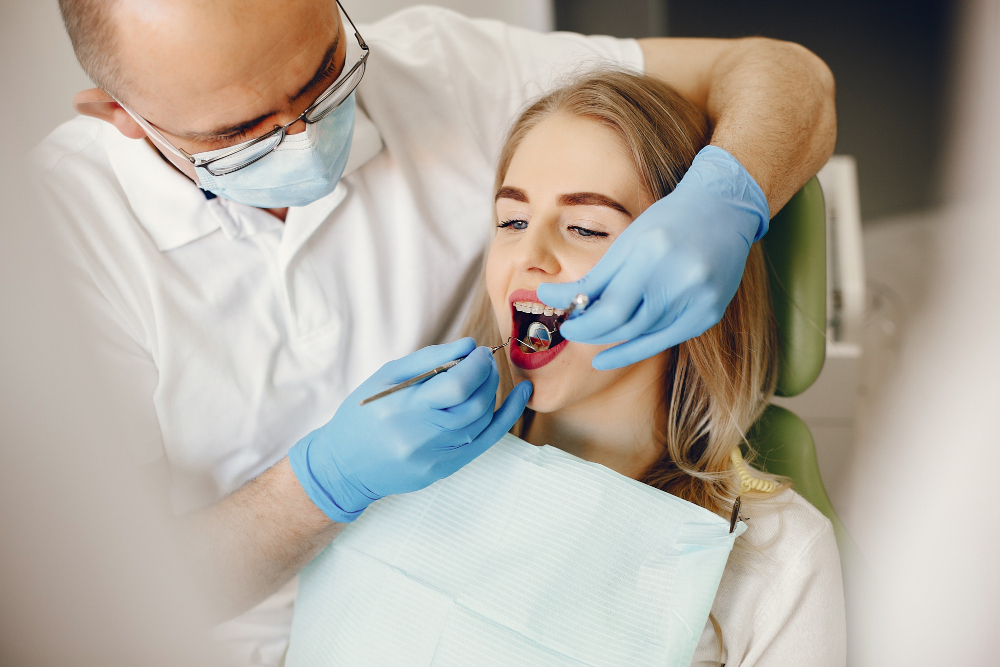Orthodontic treatment and speech: Did you know that diction and clarity of speech can be significantly influenced by tooth position and jaw structure?
The orthodontic treatment not only aligns teeth for a more aesthetic smile, but also plays an important role in the proper functioning of speech. Orthodontic problems can lead to a variety of speech and pronunciation disorders, which can affect day-to-day communication and therefore people’s confidence.
But how can these problems affect speech? The team at the clinic of Dr Normand Bach Orthodontist answers this question!
Malocclusion
Misaligned teeth, known as malocclusion, are one of the main causes of speech difficulties. Malocclusion can lead to phonetic issues, making it difficult to produce certain sounds used in everyday speech.
Class 2 malocclusion, known as deep bite, is diagnosed when the patient’s upper teeth are positioned further forward than the lower teeth. This type of malocclusion can make it difficult to produce sounds such as “s” and “z”. A Class 3 malocclusion, called an underbite, is characterized by the patient’s lower teeth protruding beyond the upper teeth, which can affect the pronunciation of sounds such as “f” and “v”.
Spaces between Teeth
A diastema, scientific term to describe a gap between two normally adjacent teeth, or simply put, it refers to excessive spaces between teeth, can also disrupt speech by allowing air to escape in an uncontrolled way during speech production.
This escape of air can lead to whistling and parasitic sounds, particularly with the “s” and “ch” sounds.
Jaws Problems
A misaligned jaw, often characterized by a mandible that is too far forward or too far back, can affect the ability to articulate clearly by interfering with the movement and position of the tongue, which is essential for the production of clear, distinct sounds.
When the lower jaw is positioned too far back compared to the upper jaw, it can make it challenging to produce certain sounds that are articulated in the back part of the mouth, i.e. near the throat, such as the “g” and “k”. Whereas, when the mandible is too far forward, it can interfere with the production of labial sounds, such as “b” and “p”, which are produced when the lips come together.

Orthodontic Treatments
Fortunately, advancement in orthodontics offer effective solutions for correcting these problems and improving speech.
Self-Ligating Brackets
Commonly known as “braces”, self-ligating brackets are usually used to realign teeth and correct malocclusions. By positioning the teeth correctly, they can help eliminate interference with sound production and improve diction. Transparent clear braces are an equally effective alternative to solve this problem.
Transparent Aligners
Invisalign aligners are particularly effective in addressing mild to moderate tooth alignment issues. By gradually repositioning the teeth, they help solve speech difficulties, while offering a more discreet and comfortable choice than some traditional braces.
Palatal Expansion Appliances
Often used in children and teens, palatal expansion appliances help in creating more space for the teeth, reducing concerns of overlapping and excessive spacing, and enabling better articulation of sounds.
Surgical Treatments
In some severe cases of mandibular misalignment, surgical intervention may be necessary. These treatments reposition the jaws to improve sound production.
The Connection between Orthodontics and Speech
Understanding that dental misalignment and mandibular problems can significantly affect diction and speech clarity is important. Equally essential is knowing that proper/effective orthodontic treatment can enhance speech clarity and realign your teeth for a more attractive smile.
If you or your child are experiencing speech difficulties due to malocclusion, excessive spacing between teeth, or jaw issues, don’t hesitate to consult Dr. Normand Bach’s team.
Our specialists will assess your situation and recommend personalized orthodontic options to improve your speech and boost your confidence.
Don’t wait any longer, make an appointment today with Dr Normand Bach!